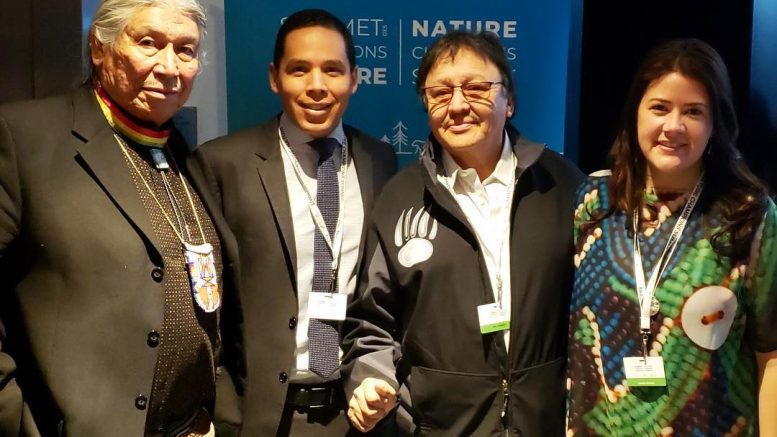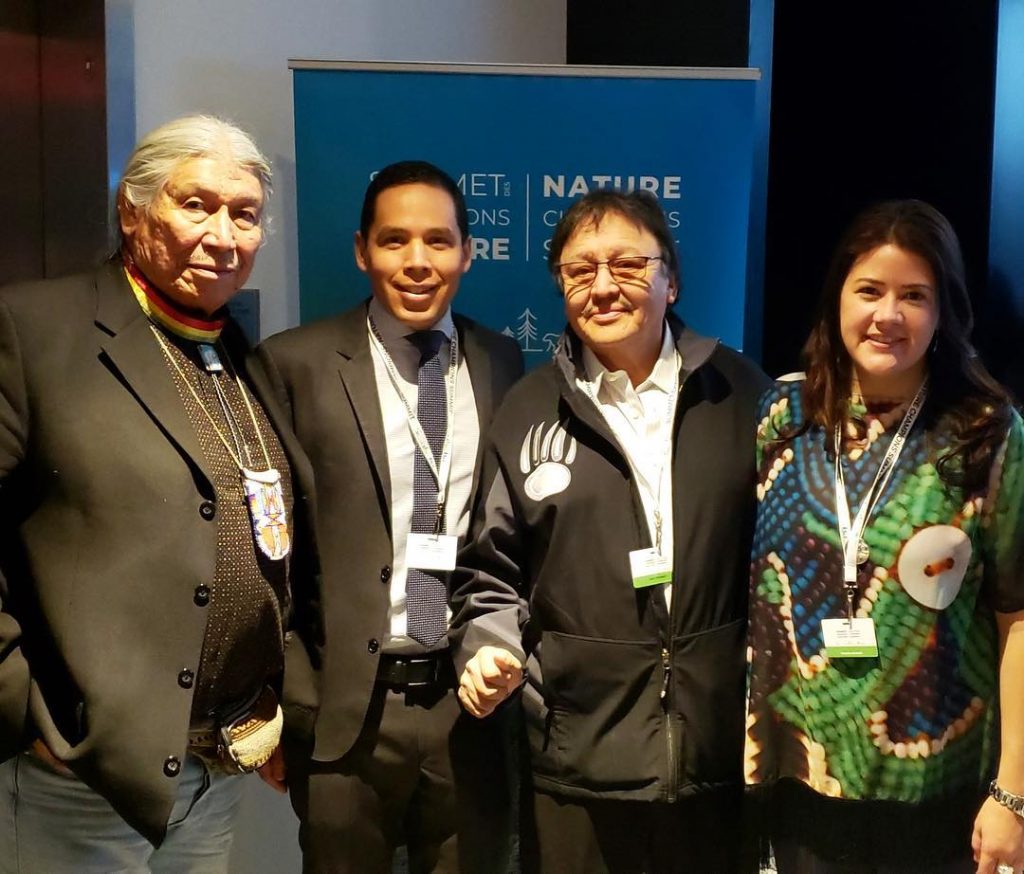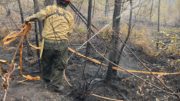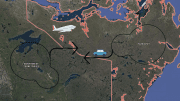Start your morning with the Splash on Denendeh Sunrise from 7:30-8:30am. Campbell was trained and mentored by longtime CKLB host and Gwich'in entertainer William Greenland. Prior to hosting the morning show and filling in on the Saturday Request Show, he had stints in the Yukon on CKRW the Rush, CBC North in Yellowknife, and began his broadcasting career at CJCD Mix 100. Before moving North he was born and raised on the banks of the Tobique River, the traditional territory of the Wolastoqiyik, Tobique Maliseet First Nation.
Northern Voices heard at Nature Summit in Montreal
 Dene elder Francois Paulette, ITK President Natan Obed, Former Dehcho Grand Chief Herb Norwegian, and Yukon AFN Regional Chief Kluane Adamek. (Photo Courtesy of Yukon AFN Region)
Dene elder Francois Paulette, ITK President Natan Obed, Former Dehcho Grand Chief Herb Norwegian, and Yukon AFN Regional Chief Kluane Adamek. (Photo Courtesy of Yukon AFN Region)









